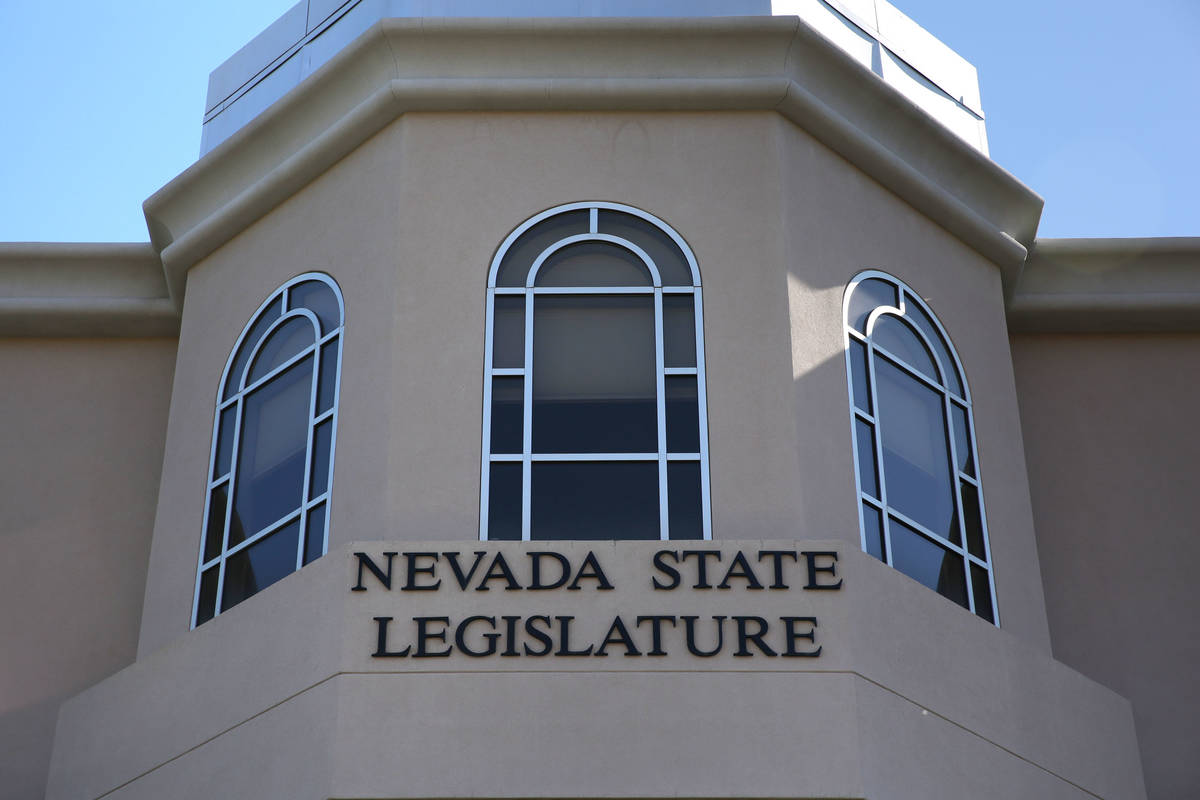STEVE SEBELIUS: 2020 election mandate? Compromise
Nevada Democrats really needed just one vote.
If they could have flipped a seat in the state Senate, they would have had a 14-7 supermajority.
And assuming Democrats in the Assembly kept their supermajority — they could even afford to lose a seat! — it would have meant total domination of the legislative branch.
Combine that with a Democratic governor, the first in 20 years, and the already considerable power of the majority in the Legislature would have been unstoppable.
But it was stopped.
The Senate will shift slightly toward the GOP, ending up divided 12 Democrats to nine Republicans. The District 5 seat will turn red after Carrie Buck defeated Kristee Watson in a close race, but Senate Majority Leader Nicole Cannizzaro will hold on to her District 6 seat by 631 votes.
A Republican senator thought vulnerable because of changing demographics in Reno, Heidi Seevers-Gansert, defeated her opponent in District 15.
A blue wave it was not.
But even if the Senate Democrats had managed to keep District 5 and knock off Seevers-Gansert, their best-laid plan would have gone awry. That’s because in the Assembly, Republicans flipped three seats.
Rather than the fight-every-battle approach, this year the GOP targeted just a handful of seats, aiming not to win a majority but to dig themselves out of the 29-13 superminority.
They turned to tried-and-true candidates. Former Assemblyman Richard McArthur won back the District 4 seat he lost to Democrat Connie Munk in 2018; former Assemblywoman Jill Dickman won back the District 31 seat she’d lost to Democrat Skip Daly in 2016; and newcomer Andy Matthews — who ran unsuccessfully for Congress in 2016 — beat Democrat Shea Backus in District 37.
That cut the Democratic majority down to 26 and raised the Republican minority to 16.
While Democrats would have preferred a supermajority, some may secretly have been rooting for the Republicans. With the ability to do anything they wanted in Carson City, backed by Gov. Steve Sisolak, there would have been no excuse to offer their progressive wing for failing to implement a liberal agenda. When people work hard to put you into office, they expect results.
Another person who might be relieved: Sisolak. Now any bill to raise taxes that comes out of the 2021 Legislature will be the result of a bipartisan compromise rather than one-party fiat. And because he’s up for re-election in 2022 and facing backlash over virus closures, bipartisan cover is welcome.
The question is: Will there be bipartisanship? The Republican Assembly caucus has moved measurably to the right with the addition of Annie Black in District 19, Matthews and the return of Dickman. Everyone remembers the 2003 session, during which Democrats tried to force a tax increase and refusenik conservatives just said no.
But that wasn’t bipartisanship. It’s not a compromise to propose what you know the other side hates, maneuvering them into a tough vote and then calling them obstructionists when they refuse to go along.
Clawing their way out of superminority status means Republicans will have a seat at the legislative table. It means Democrats taking ideas about budget cuts or alternative education programs seriously. It means listening to the GOP and its supporters in the business community while crafting policy.
It’s going to be a frustrating and unpleasant exercise on both sides. The consolation is that, if they succeed, what emerges might represent a consensus, which we badly need as the economy stutters along under coronavirus restrictions. Hard choices have to be made. Now Democrats need more than one vote. A supermajority would have been easy. Instead, lawmakers on both sides will have to do what’s hard.
Contact Steve Sebelius at SSebelius@reviewjournal.com or 702-383-0253. Follow @SteveSebelius on Twitter.

















